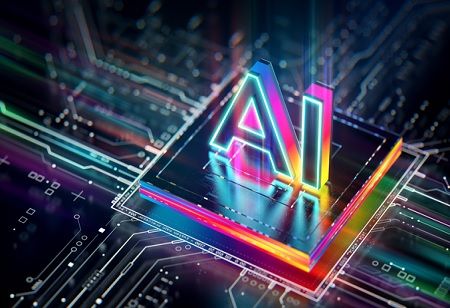- Philippine education leaders are using AI to address class disruptions, improve learning continuity, and enhance subsidy delivery.
- Initiatives like Project LIGTAS and Project PAARAL use AI for disaster preparedness in schools and smarter financial support for students.
- Experts stress the need for ethical, inclusive AI policies to ensure technology empowers all learners and reduces inequality.
Over 80 technologists, education officials, and policy experts gathered for a high-level forum organized by the Philippine Institute for Development Studies (PIDS) and the University of the Philippines (UP), through the Philippine APEC Study Center Network (PASCN), to explore the evolving role of artificial intelligence (AI) in shaping the future of education in the country. The discussions centered around how AI is already being used to address class disruptions, enhance learning continuity, and deliver smarter, more equitable subsidy programs.
PIDS President Aniceto C. Orbeta, Jr. opened the forum by stressing the importance of inclusive digital policies. He warned that without proper regulation, the AI revolution could deepen social inequalities instead of narrowing them. He called for stronger cross-agency collaboration and sustained investment in both digital infrastructure and education, ensuring that AI benefits reach all segments of society.
A key highlight of the forum was the presentation of two high-impact projects under the Department of Education’s Education Center for AI Research (E-CAIR). Dr. Sebastian Ibanez, Deputy Chief AI and Data Officer of E-CAIR, shared how the center is building a robust ecosystem of AI researchers, engineers, and data scientists focused on developing scalable solutions to real-world educational challenges. He stated that the debate has moved past whether AI belongs in education, to how best to use it responsibly. He emphasized that if used well, AI could help leapfrog chronic challenges, from disaster response to dropout rates, and create a more inclusive and efficient education system.
One of the projects presented was Project LIGTAS (Learning Institution GeoHazard Tracking and Assessment for Safety), which integrates AI modeling and satellite data with existing government information to help schools prepare for floods, landslides, extreme heat, and other climate risks. The tool also links environmental hazards to student learning data such as reading performance, allowing education officials to proactively design policies that ensure continued learning even under adverse conditions. Senior data scientist Jose Marie Antonio Minoza explained that the project doesn’t just predict risks but enables strategic planning well in advance to ensure no student is left behind due to environmental disruptions.
Another notable initiative was Project PAARAL, which applies AI to assess the implementation of DepEd’s Senior High School (SHS) Voucher Subsidy Program. This program helps decongest public schools by offering financial support to students enrolling in private institutions. Using AI-generated graph networks based on open-source geographic and road data, the project visualizes school accessibility and identifies areas where students remain underserved. These insights help expose gaps where government vouchers fall short of actual tuition costs, making private education inaccessible for many low-income families. Data scientist Sebastian Felipe Bundoc revealed that despite receiving ₱9,000 in subsidies, students often require an additional ₱20,000 out-of-pocket, highlighting a major barrier in current financial support structures.
Also Read: Philippine's First IC Design Flexible Learning Platform Debuts at Colegio de Muntinlupa
Incoming PIDS President Philip Arnold Tuaño echoed the sentiment that AI holds vast potential to transform the country’s education system. He stressed that AI must be used not as a futuristic luxury but as a practical tool to enhance equity and improve outcomes today. Meanwhile, UP President Atty. Angelo Jimenez raised critical reflections on ethics, privacy, and the democratic use of technology. He reminded the audience that AI should not only be judged by how it works, but also by whom it serves and to what end. It must empower, not exclude.
The forum concluded with a shared commitment among stakeholders to align AI innovations with principles of inclusion, accessibility, and public good. As AI continues to evolve, PIDS, UP, and other key institutions pledged to steer its development in a direction that uplifts communities and strengthens the country’s education system for all.

